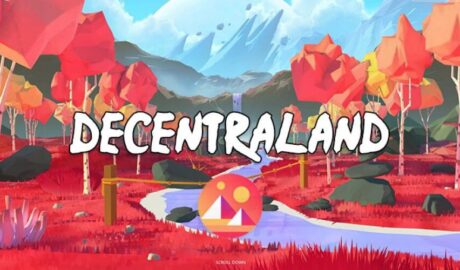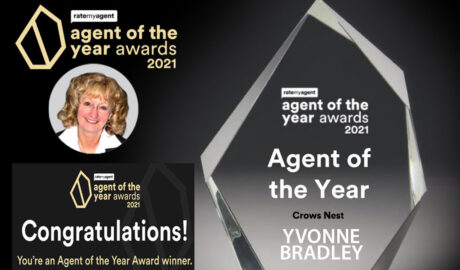PHOTO: NFTs. CRYPTO SLATE
The explosion of NFTs or “non-fungible tokens” in the past couple of years has left many Americans scratching their heads, wondering why anyone would pay millions of dollars for a picture of a cartoon ape.
Though digital art has been one of the most popular applications for this technology, pretty much anything can be turned into an NFT. Earlier this year, an unassuming 4-bedroom home in Gulfport made headlines when it became the first U.S. property auctioned as an NFT.
Since then, a handful of other local homes have been turned into NFTs including one for sale right now in St. Petersburg.
Local real estate agent Andrew Daniels is leading the charge and working to educate consumers on the intersection of NFTs and real estate. He is the head of blockchain development for the New Wealth CoLab, a real estate investment group that also hosts its own collaborative working space in Tampa.
Can you explain what blockchain technology is?
Blockchain incentivizes peer-to-peer transactions. Blockchain is the system that records all of these transactions and allows everybody to refer back to it once a transaction is done. It just allows for everybody to act in a peer to peer way that is decentralized.
Can you explain what an NFT is?
NFT stands for non fungible token. So there are fungible tokens and non fungible tokens.
An example of a fungible token would be a $20 bill. If I have a $20 bill and you have a $20 bill and we traded $20 bills, we would not be exchanging any value.
An example of a non fungible token could be a real estate asset. You have the tax ID number, the legal description, the property address. It would be very easy to distinguish this token from another property in Georgia because they wouldn’t have the same value. They wouldn’t be the same thing.
An NFT can represent property, a car registration, digital art. It’s just the vehicle that represents ownership on the blockchain.
How can blockchain technology be applied to real estate?
Right now we use the County Clerk’s Office for central recording, and it’s a very redundant system, very archaic, very (costly.) We involve probably 15 to 20 different people to take over a real estate transaction when if we were to record all these transactions on a ledger system like the blockchain, it would be a convenient central recording agency for everybody to refer back to.
Right now, we are waiting on government agencies to recognize blockchain as a verifiable source of information. Until that happens we won’t actually be able to record property deeds with blockchain.
What we are currently doing is tokenizing properties as NFTs. First we create an LLC. That LLC will hold the property we want to sell as an NFT. The owner operating agreement states that the property is represented as a token number and held in a (crypto) wallet address. So anybody who holds that token in the wallet address has ownership of the LLC and in turn has ownership of the property.
What are some of the benefits of tokenizing a home as an NFT?
With a typical home, your equity is not liquid. You have to go to a bank and get a home equity line of credit. When you tokenize a property, that equity becomes liquid. You’re going to be able to connect your asset to decentralized finance platforms that will lend to you in real time.
If you are renting out the property, you can separate the equity from the income it earns. So you will be able to leverage the value of the home while also selling the rights to the lease revenue.
Tokenizing also allows you to crowdfund investment and fractionalize the asset so multiple buyers can own a piece.
What kind of people are interested in buying and selling homes this way?
It’s predominantly going to be crypto enthusiasts. But this is also attractive to international buyers. There are crypto mortgages and types of lending where they can borrow against their crypto so they don’t have to swap currencies and use the U.S. dollar.
Do you think NFT properties will become more mainstream in the future? What will it take to get realtors and consumers on board?
The United States lags behind a lot of other countries on this. So if you were to look up Norway, Switzerland, they actually use blockchain technology for identification and land registries.
It will probably take 10 to 15 years but soon every asset will be a digital asset. For a car, for a house, for memberships, for ticketing, for subscriptions, for our identifications or car registration or insurance, we will have individual non fungible tokens that we are able to authenticate with third party companies in real time.
I believe that the government will come out with a central bank digital currency, probably within the next two years. So, people will start to understand what blockchain is without even recognizing it. That is going to be the first point of mass adoption.
READ MORE VIA TAMPABAY.COM
MOST POPULAR
 Jacinda Ardern responds to quitting, moving to New Plymouth
Jacinda Ardern responds to quitting, moving to New Plymouth Rich-list split among magnificent multi million-dollar real estate
Rich-list split among magnificent multi million-dollar real estate Real estate agent wins nightmare legal fight
Real estate agent wins nightmare legal fight Real estate guru has blindsided Australia’s #1 real estate group
Real estate guru has blindsided Australia’s #1 real estate group Aussies poke fun at the eye-watering price a real estate agent is asking
Aussies poke fun at the eye-watering price a real estate agent is asking Claims about Jacinda Ardern’s wealth
Claims about Jacinda Ardern’s wealth The Block Australia star dies
The Block Australia star dies 100 Most Influential Real Estate Agents | NOW LIVE
100 Most Influential Real Estate Agents | NOW LIVE Abandoned land for sale
Abandoned land for sale Struggling to pay the mortgage? Why you don’t need to shower!
Struggling to pay the mortgage? Why you don’t need to shower!


















